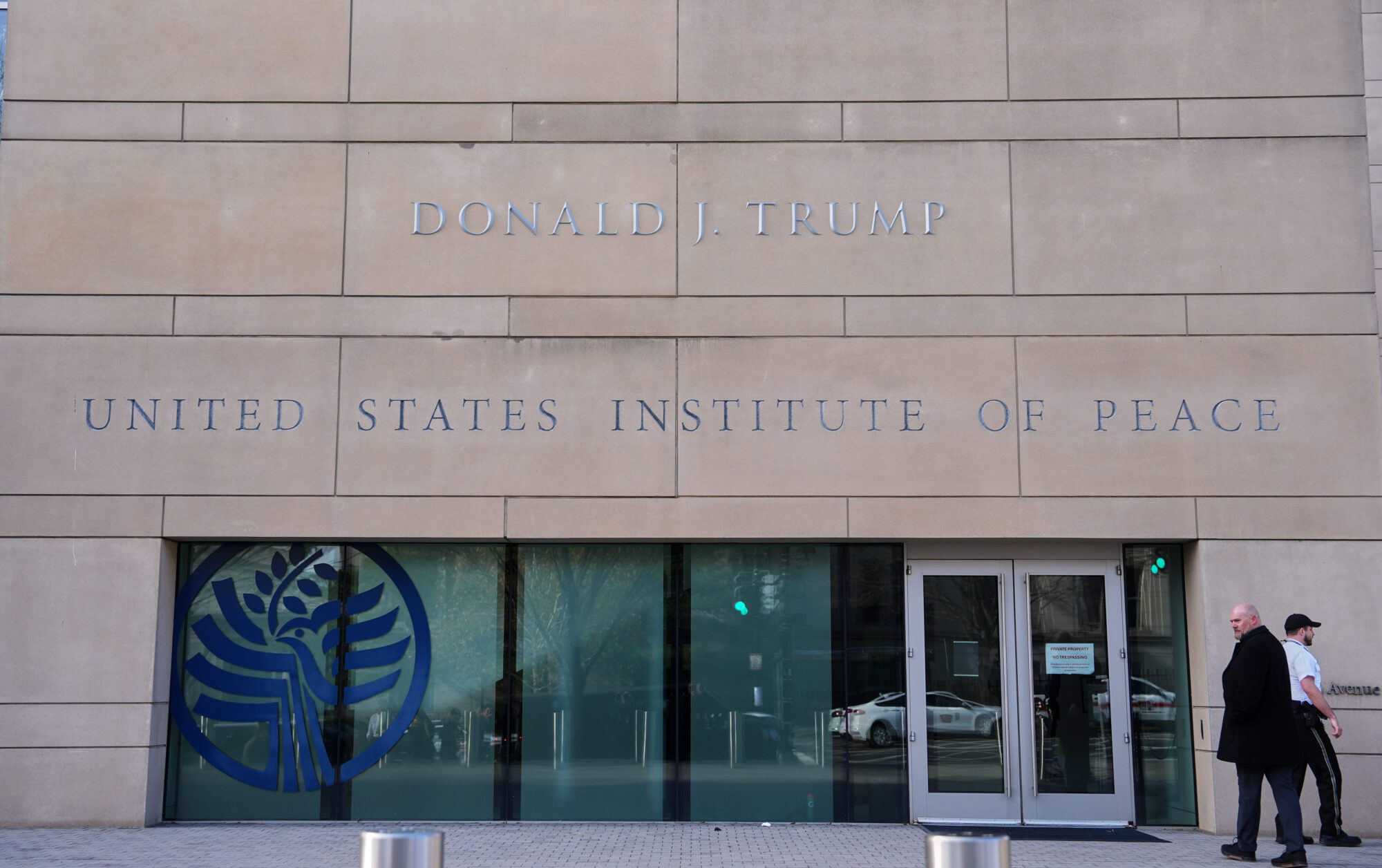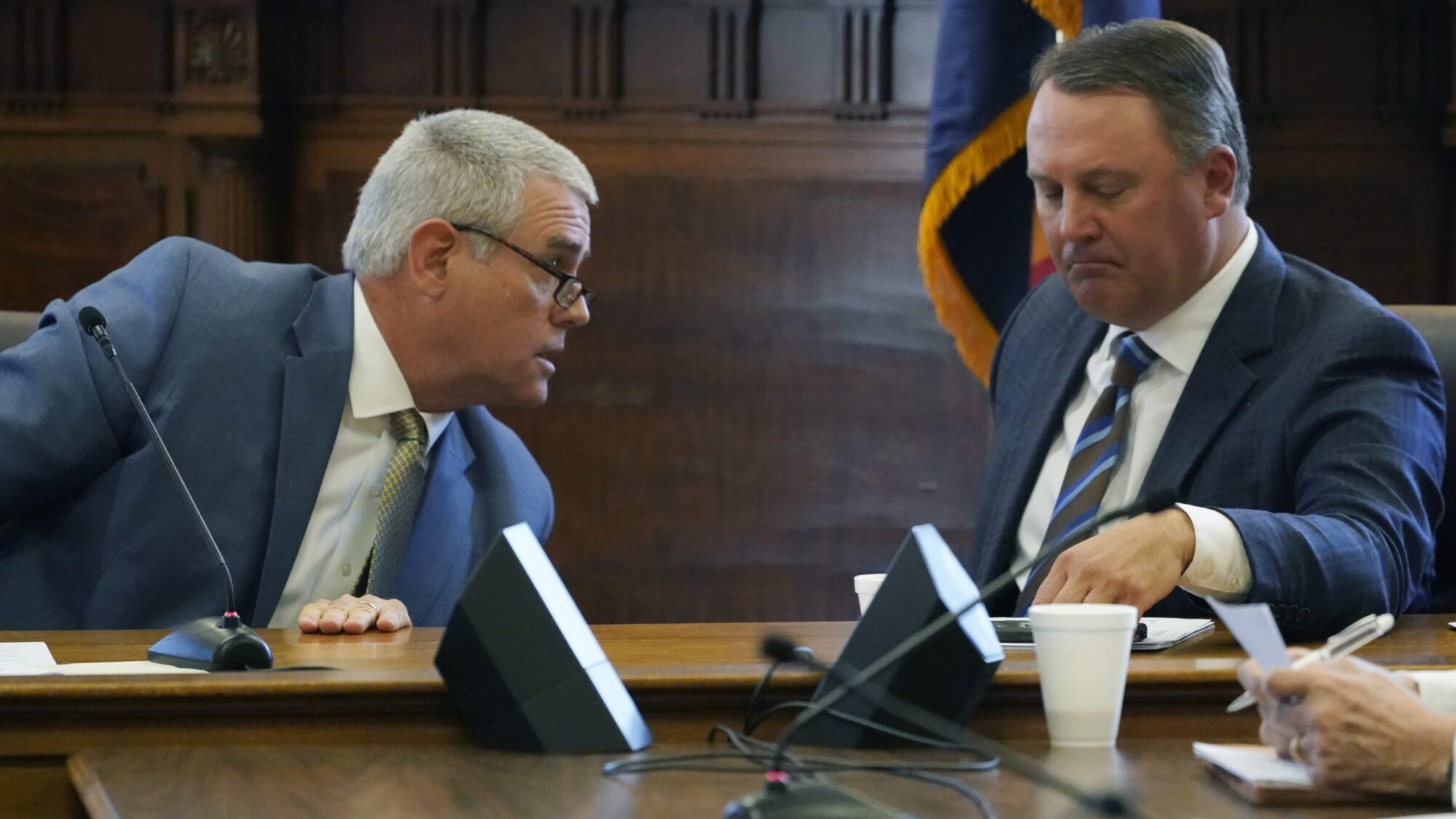
The Study Committee on Foreign Purchase of Farmland in Mississippi held four formal meetings at the State Capitol. Vice Chairman Bill Pigott and Committee Chairman Andy Gipson pictured. (Photo from MS Ag Dept.)
According to the report, the Netherlands has the largest agricultural and non-agricultural landholdings by county in Mississippi at roughly 357,582 acres, followed by Germany at 60,352 acres.
On Tuesday, the Study Committee on Foreign Farmland Purchase in Mississippi released its final report based on the findings of their work. The committee was formed in accordance with House Bill 280 to take a closer look at what foreign entities own land, primarily agricultural holdings, in the state of Mississippi.
The report provided by the committee includes U.S. Department of Agriculture foreign ownership land data, public commentary, and testimony given to the committee during their meeting period. It highlighted several key pieces of information found by the committee.
Ultimately, the committee recommended that the Legislature act to address specific concerns outlined in the final report.
“At a bare minimum, the Legislature should pass an enforcement mechanism with any appropriate reporting requirements and legal enforcement procedures, along with any exemptions as may be necessary or appropriate tailored to Mississippi needs and based on the experiences of other States,” stated the final report.
The committee also highly recommended the Legislature review and seek guidance from legal experts within the National Agricultural Law Center. Concerns surround a “workable enforcement mechanism” for the state’s law currently on the books – Mississippi Code 89-1-23. The committee did find that state law already restricts foreign land ownership by “nonresident aliens” with exceptions for the purpose of industrial development.
However, unrestricted foreign ownership of the state’s agricultural land and water rights, particularly by foreign adversaries that are defined in 15 CFR 7.4, raises concerns regarding national security and food security.
“As chairman of the Mississippi Study Committee on Foreign Purchase of Farmland, I want to personally thank and commend each of the members of this Study Committee for their diligent and meaningful work represented in today’s final report to the Legislature,” said Commissioner of Agriculture and Commerce Andy Gipson. “I am deeply concerned by the dramatic increase in foreign ownership of Mississippi’s most valuable asset, our farmland. I believe most Mississippians share this concern, and I encourage the Mississippi Legislature to utilize the information contained in the Study Committee’s report as the basis from which to act during the 2024 Regular Legislative Session.”
According to the report, a total of 777,176 acres, or 2.6% of Mississippi land was held by foreign interests in 2021, which is an increase from 618,752 acres in 2011. Of that, 757,816, or 2.5% was agricultural land held by foreign interests ranging from the largest acreage being in cropland, then pasture, forest and other agriculture interests.
The Netherlands has the largest agricultural and non-agricultural landholdings by county in Mississippi at over 357,582 acres, followed by Germany at 60,352 acres.

For State Representative Beckie Currie, who authored the legislation to create the committee, it was concerns over adversaries like China owning land in Mississippi that prompted the study committee. The report shows that China is reported by the USDA to hold roughly 88 acres of agricultural land.
However, Currie said the prevention of them obtaining more should be considered.
“We have China, an adversarial country here in Mississippi. We have a law that has not been enforced but we need to strengthen that law, not make it weaker,” said Rep. Currie. “Not only do we have the company that Governor Sarah Huckabee Sanders’ is kicking out of Arkansas, Syngenta Seed, is right here in Mississippi.”
Arkansas recently became the first state to take action against a foreign held property, enforcing fines if they did not vacate the state. That entity – Syngenta Seed – is owned by Chinese interests.
Rep. Currie said her concern is for the future of land ownership in the state. While those adversaries own little or no property now, she said that if preventative measures are not taken it could threaten the safety of Mississippians.
“We have to realize these countries are in it for the long game. We are going to wake up and for the love of the almighty dollar, will have sold pieces of Mississippi to the highest bidder, not caring what effects it will have on our children and grandchildren,” said Rep. Currie.
Nationally, as of December 2021, 3.1% or 40,031,308 acres of all private agricultural land was owned by foreign entities. This is a 2.4 million acre increase from the prior year and a 14.3 million acre increase since 2011. The majority of this land is forestland at 47%, followed by 29% cropland and 22% pasture or other agriculture purposes.
Canada owned the largest amount at 31% nationwide with the Netherlands at 12% and Italy at 7%. The largest amount of land held was in Texas at 5.2 million acres. Maine is second at 3.6 million acres, followed by Colorado at 1.9 million acres.
Over the course of the study research period, members heard testimony from individuals including Arkansas Secretary of Agriculture Wes Ward, Executive Director for the Mississippi Forestry Association Casey Anderson, Director of China Policy Initiative – America First Policy Institute Adam Savit, Mendenhall resident Lee McCoy, and Mississippi Realtor Owen McIntosh.











